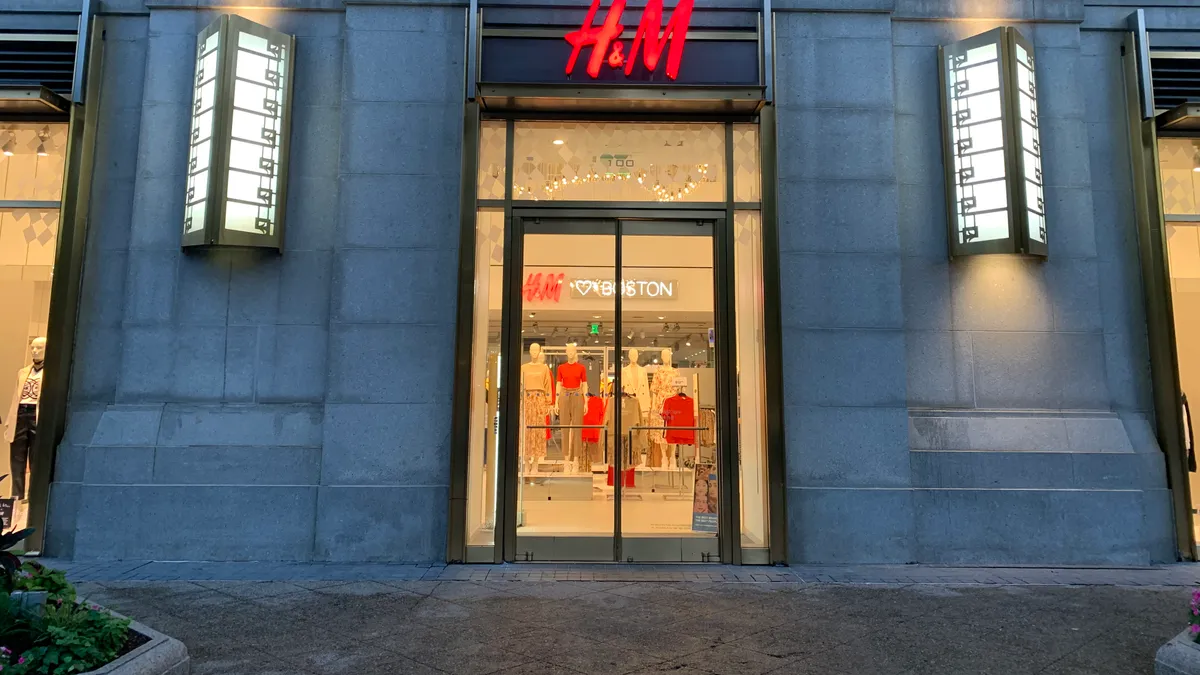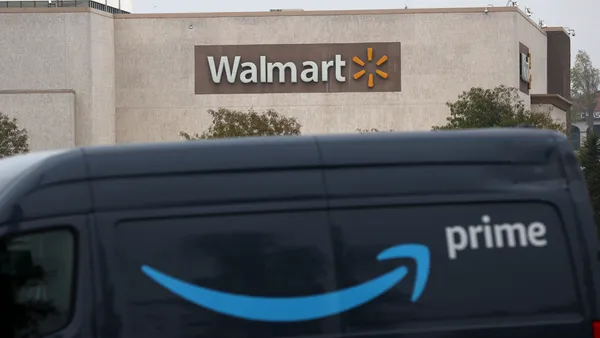Dive Brief:
- H&M is piloting a new consulting service, Treadler, that will give smaller clothing brands access to the Swedish retailer's supply chain, according to a press release distributed Wednesday.
- Treadler, an H&M subsidiary, aims to help clients "overcome initial business barriers and accelerate sustainable change" by guiding them through product development, sourcing, production and logistics, a Treadler spokesperson told Supply Chain Dive in an email Wednesday.
- Using H&M's network of third-party providers, Treadler could help clients develop supplier networks that can mitigate challenges posed by trade or COVID-19, Treadler Managing Director Gustaf Asp said, according to Financial Times.
Dive Insight:
H&M Group is an expert in fast fashion, made possible by a large supply chain cultivated over the company's more than 70 years of experience. Its nine brands boast 4,968 stores in 70 markets. Despite the large scale of its operations, H&M is continuously working to make its products more sustainable, incorporating organic and recycled fibers and alternative textiles.
H&M has 2,383 supplier factories around the world, according to its 2018 Sustainability Report. The retailer has pledged to reach 100% recycled or sustainable materials across its supply chain by 2030 and 100% sustainable cotton sourcing this year.
The process Treadler is making available to clients mirrors H&M's:
-
Component sourcing, product development and fitting
-
Sourcing optimization and production market allocation
-
Sampling development and size set
-
Price quotation and transparent, fact-based pricing
-
Physical and chemical quality checks
-
Quality control, inspection and production
-
Order management, shipping, customs, and warehouse delivery
"We are not concerned or afraid of opening up the supply chain. Individual brands can only make it so far. To take it further in the industry, we need to open it up to collaboration," said Asp according to the Financial Times. All these details are guarded secrets for most retailers, but H&M hasn't voiced any reservations about letting competitors in on the processes it has worked so long to develop.
Asp declined say how much business H&M expected Treadler to do but noted the market was "sizeable."
In a statement, he laid out a win-win scenario for H&M: "We see the opportunity to utilize the full potential of H&M Group's extensive investments and progressive sustainability work by catering to clients' needs and contributing to driving tong-term growth for H&M Group, while driving change in our industry. In discussions with other companies, we have experienced a demand for these kinds of services."
Driving industry-wide change is a philosophy newly appointed H&M Group CEO Helena Helmersson has been supporting throughout her time at the company. She helped build the foundation of the company's sustainability work.
"To future-proof our industry, we have focused on transforming and improving our supply chain. We've realized that the output of our efforts can be valuable for others too," Helmersson said, according to Financial Times.
H&M's current supply chain comprises 57% recycled or sustainably sourced materials and 97% recycled or sustainably sourced cotton. But it, and the larger industry, have a long way to go.
"At the end of the day, H&M is still very much a part of the unsustainable fast fashion industry. Its promotion of 'disposable' fashion and constant rotations of new trends and products has a huge environmental impact. An increasing amount of cheap clothing ends up in landfill after a few wears due to these reasons," according to an analysis by Good on You. The website, which rates brands’ ethical and sustainability work, gave H&M a score of three out of five on people, planet and animal impact.
Some executives believe more sustainable supply chain models will be viable in the near future, according to a McKinsey Apparel CPO survey published last October. The industry's growing emphasis on transparency, greater implementation of sustainable materials, tighter relationships with suppliers and revamping purchasing practices are cause for optimism, the survey found. And more than 50% of North American apparel CPOs reported sustainability and transparency as their top concern.













